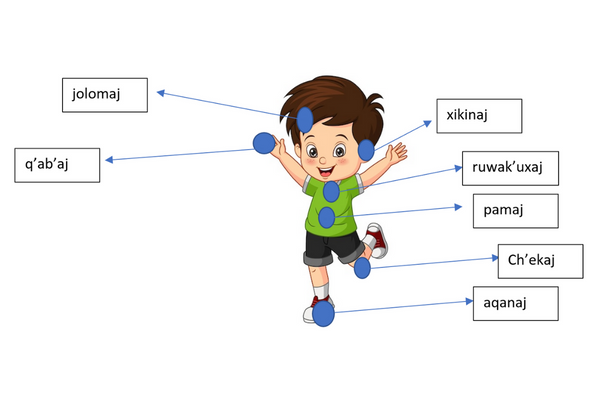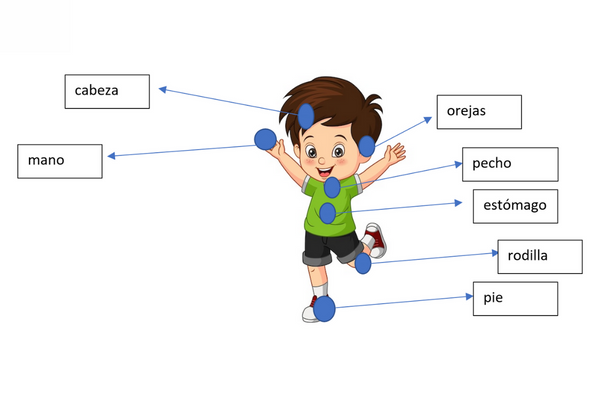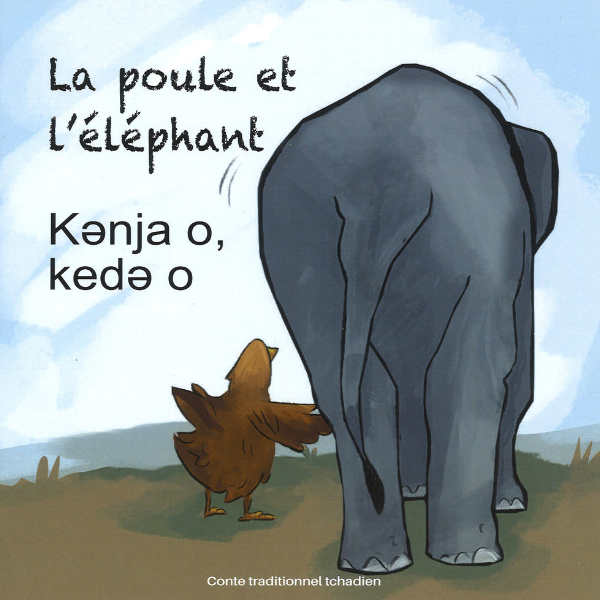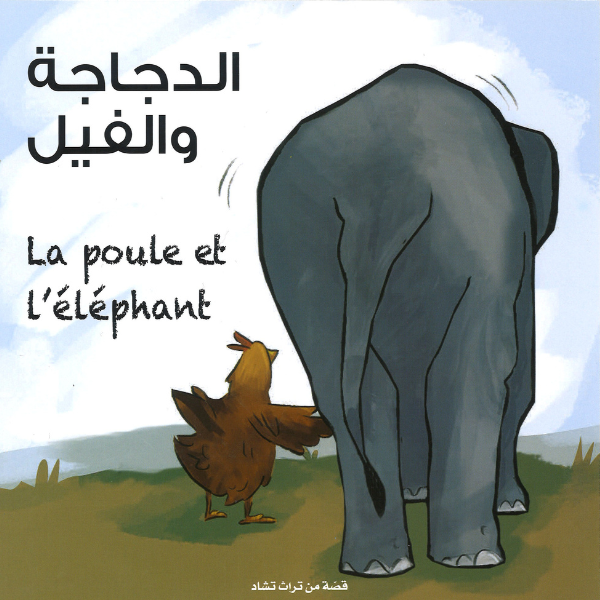Who more than a Swiss NGO such as Enfants du Monde has a vocation to celebrate the International Mother Language Day? The country has four national languages: the mother tongue depends on whether you were born in one of the four corners of the country. For Enfants du Monde, this emblem of identity also allows access to education.
Mother tongue as a gateway to education
In countries in which we intervene, it is common for children from the same country or region to speak different languages at home than the official language used at school. In Guatemala about twenty Mayan languages coexist with Spanish. In Burkina Faso, more than sixty national languages are mixed with the official French. Chad has more than 140 local languages in addition to the country's two official languages, French and classical Arabic.
 Bodyparts in Kaqchikel
Bodyparts in Kaqchikel
 Bodyparts in Spanish
Bodyparts in Spanish
In order to facilitate children's learning at school, Enfant du Monde advocates bilingual education in the mother tongue and in the official language. We work with local teams to develop educational materials that are rooted in the language, culture and daily environment of children, thus allowing for a better assimilation of subjects.
It is important to know that, in general, in Africa, teaching is not done in the language of children. The program of Enfants du Monde is based on the language of the pupil, based and embedded in his/her daily life and culture so that he/she can understand what he/she is learning; therefore, he/she learns more quickly.
 Storybook in French and Sar from Enfants du Monde programs in Chad.
Storybook in French and Sar from Enfants du Monde programs in Chad.
 Storybook in Arabic and French from Enfants du Monde programs in Chad.
Storybook in Arabic and French from Enfants du Monde programs in Chad.
A historic day to celebrate language rights
On February 21, 2000, the International Mother Language Day was proclaimed by UNESCO and has been celebrated since then to promote linguistic and cultural diversity and multilingualism.
During the ceremony of its first celebration, the Secretary General of the United Nations Kofi Annan said that this day makes all peoples aware of the value of languages. Reaffirming the paramount importance of preserving their diversity, the Secretary-General called for increased efforts to languages as a shared heritage of humanity.
Nelson Mandela once said:
If you speak to someone in a language he understands, you are speaking to his head; if you speak to them in their own language, you are speaking to their heart.
